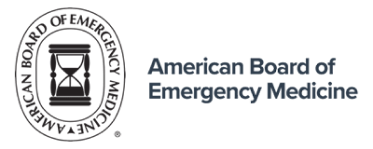Post-traumatic stress disorder (PTSD) is a complex mental health condition that can have significant impacts on an individual’s well-being. Understanding the unique aspects of PTSD is crucial for both those affected by it and their loved ones.
Understanding PTSD: A Brief Overview
Defining Post-Traumatic Stress Disorder
PTSD is a complex disorder that manifests differently in each individual. It is characterized by a range of symptoms, including intrusive thoughts, nightmares, flashbacks, and intense emotional distress when reminded of the traumatic event. These symptoms can be debilitating, making it challenging for individuals to function normally in their day-to-day lives.
Furthermore, PTSD can also lead to physical symptoms such as headaches, gastrointestinal problems, and chronic pain. The body’s response to trauma is not limited to psychological distress but can also manifest in physical ailments.
It is critical to note that PTSD is not a sign of weakness or a character flaw. It is a natural response to an overwhelmingly traumatic experience. Understanding this distinction is crucial in providing support and empathy to individuals struggling with PTSD.
The Prevalence of PTSD in Society
The prevalence of PTSD in society is alarming. Research suggests that approximately 7 – 8% of the population will experience PTSD at some point in their lives. This statistic highlights the significance of understanding the unique nature of this condition.
PTSD can occur in various contexts, including but not limited to military combat, natural disasters, physical or sexual assault, accidents, and witnessing violence. The wide range of traumatic events that can lead to PTSD underscores the importance of recognizing and addressing this disorder in our society.
Moreover, it is essential to acknowledge that PTSD can affect not only the individuals who directly experienced the traumatic event but also those who witnessed it or were indirectly affected by it. This includes first responders, healthcare professionals, and even family members of those who have experienced trauma.
By recognizing the prevalence of PTSD and its impact on individuals and communities, we can work towards creating a more compassionate and supportive society. This involves raising awareness, promoting early intervention, and providing accessible mental health resources for those affected by PTSD.
The Unique Characteristics of PTSD
The development of PTSD is closely linked to the experience of trauma. It is not merely the traumatic event itself that causes PTSD, but the individual’s response to it. Trauma can overwhelm a person’s ability to cope, leading to a range of psychological and emotional reactions. These reactions can include intense fear, helplessness, and horror.
Not everyone who experiences trauma will develop PTSD. Some people may be more resilient and able to cope with trauma, while others may develop PTSD symptoms. Factors such as previous exposure to trauma, personal vulnerability, and the availability of social support can influence an individual’s likelihood of developing PTSD.
Unlike some other mental health conditions, PTSD often becomes a chronic disorder. The symptoms can persist for months or even years, significantly affecting an individual’s quality of life. PTSD symptoms can be categorized into four main clusters: intrusive thoughts and memories, avoidance behaviors, negative changes in mood and cognition, and hyperarousal.
Intrusive thoughts and memories can involve recurrent nightmares, flashbacks, or distressing thoughts related to the traumatic event. Avoidance behaviors may include efforts to avoid reminders of the trauma, such as avoiding certain places, people, or activities. Negative changes in mood and cognition can manifest as feelings of guilt, shame, or a distorted sense of blame. Hyperarousal symptoms can include irritability, difficulty concentrating, hypervigilance, and an exaggerated startle response.
Understanding the chronic nature of PTSD is crucial for providing effective support and treatment. It is important to recognize that individuals with PTSD may experience ongoing challenges in various aspects of their lives, including relationships, work, and overall well-being. By acknowledging the chronicity of PTSD, healthcare professionals and support systems can develop comprehensive and long-term strategies to assist individuals in their recovery journey.
The Psychological Impact of PTSD
Cognitive Effects of PTSD
Individuals with PTSD often experience a wide range of cognitive difficulties that can significantly impact their daily lives. One of the most common cognitive impairments associated with PTSD is difficulties in concentration. The constant intrusion of distressing memories and thoughts can make it challenging for individuals to focus on tasks at hand, leading to decreased productivity and increased frustration.
In addition to concentration problems, individuals with PTSD may also struggle with memory impairments. The traumatic experiences that underlie PTSD can disrupt the normal functioning of memory processes, making it difficult for individuals to recall specific details or events. This can be particularly distressing as it may contribute to feelings of confusion and a sense of detachment from one’s own life.
Furthermore, decision-making can become a significant challenge for individuals with PTSD. The constant state of hypervigilance and fear associated with the disorder can lead to an overwhelming sense of uncertainty and doubt. This can result in difficulties in making even simple decisions, as individuals may constantly second-guess themselves and fear the potential consequences of their choices.
These cognitive impairments can have a profound impact on an individual’s daily functioning and occupational performance. Simple tasks that were once effortless may become arduous and time-consuming. The frustration and sense of incompetence that arise from these difficulties can further exacerbate the psychological distress experienced by individuals with PTSD.
Emotional Consequences of PTSD
PTSD is characterized by a range of intense and distressing emotions that can significantly impact an individual’s overall well-being. One of the primary emotional consequences of PTSD is an overwhelming sense of fear. Traumatic experiences can lead to a heightened state of anxiety and hypervigilance, causing individuals to constantly feel on edge and anticipate potential threats. This constant state of fear can be exhausting and can significantly impact an individual’s ability to feel safe and secure in their environment.
In addition to fear, individuals with PTSD often experience intense anger and irritability. The emotional turmoil associated with the disorder can lead to a short fuse, making it difficult for individuals to regulate their emotions and respond appropriately to triggering situations. This can strain relationships and create a cycle of conflict and isolation.
Sadness and feelings of hopelessness are also common emotional consequences of PTSD. The traumatic experiences that underlie the disorder can shatter an individual’s sense of trust and belief in the world, leading to a deep sense of sadness and despair. These emotions can contribute to social withdrawal and a loss of interest in previously enjoyed activities, further isolating individuals from their support networks.
Lastly, individuals with PTSD often experience overwhelming feelings of guilt and shame. They may blame themselves for the traumatic events they experienced or feel guilty for surviving when others did not. These feelings can be debilitating and can contribute to a negative self-image and a sense of unworthiness.
Recognizing and addressing these emotional challenges is vital for supporting individuals with PTSD. Providing a safe and non-judgmental space for individuals to express and process their emotions is crucial in their journey toward healing and recovery.
The Physical Manifestations of PTSD
Sleep Disturbances and PTSD
Many individuals with PTSD experience persistent sleep disturbances, such as nightmares, insomnia, or restless sleep. These sleep disturbances can exacerbate other symptoms of PTSD and have a negative impact on overall health and well-being.
The Connection Between PTSD and Chronic Pain
Research suggests a strong association between PTSD and chronic pain conditions. Individuals with PTSD are more likely to experience conditions such as fibromyalgia, migraines, or back pain. This connection highlights the complex interplay between the mind and the body in PTSD.
PTSD and Comorbid Conditions
PTSD and Depression
Depression commonly coexists with PTSD. The constant struggle of living with PTSD symptoms can contribute to feelings of hopelessness, sadness, and a loss of interest in previously enjoyed activities. Recognizing and addressing the comorbidity of depression in individuals with PTSD is crucial for comprehensive treatment.
PTSD and Anxiety Disorders
PTSD frequently co-occurs with various anxiety disorders, such as generalized anxiety disorder, panic disorder, or social anxiety disorder. The combination of these conditions can intensify symptoms and make daily life even more challenging. Identifying and treating these comorbidities is essential for improving overall well-being.
In Conclusion
Post-traumatic stress disorder is a unique mental health condition that requires specialized understanding and support. Recognizing the distinct features of PTSD, including its chronic nature, psychological impact, physical manifestations, and comorbidities, is crucial for effectively addressing the needs of those affected. By fostering empathy, raising awareness, and providing appropriate resources, we can better help individuals on their journey to healing and recovery.
To learn about the PTSD treatment and support options we offer, contact Waybridge today to schedule a mental health consultation.




